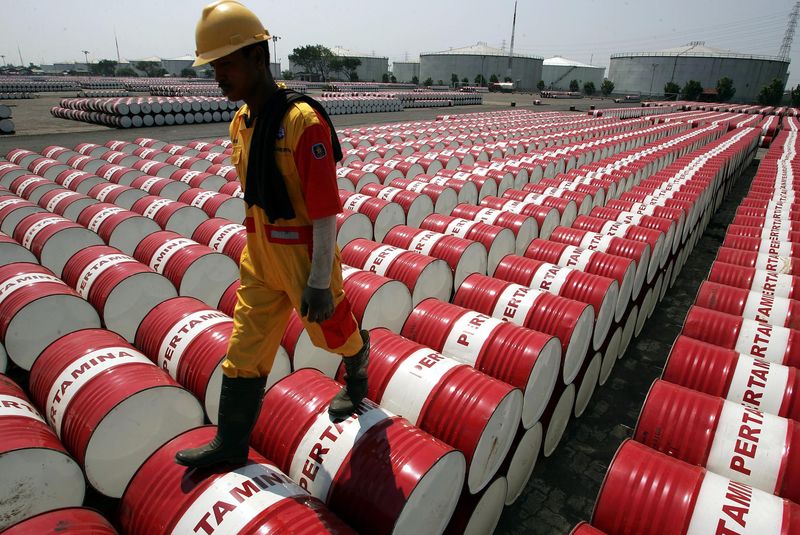Investing.com - Oil prices held on to small gains in North American trading on Wednesday, after data showed that U.S. crude supplies fell more than forecast last week.
The U.S. West Texas Intermediate crude August contract was at $43.78 a barrel by 10:38AM ET (1438GMT), up 27 cents, or around 0.6%. Prices were at around $43.77 prior to the release of the inventory data. The U.S. benchmark fell to its lowest since November 14 at $42.94 in the prior session.
Elsewhere, Brent oil for August delivery on the ICE Futures Exchange in London tacked on 18 cents to $46.20 a barrel, after hitting $45.42 a day earlier, a level not seen since November 15.
Oil prices lost around 2% on Tuesday, falling into bear market territory, as concerns over a steady increase in U.S. production added to fears over a glut in the market.
The U.S. Energy Information Administration said in its weekly report that crude oil inventories fell by 2.5 million barrels in the week ended June 16.
Market analysts' expected a crude-stock decline of around 2.2 million barrels, while the American Petroleum Institute late Tuesday reported a supply-drop of about 2.7 million barrels.
Supplies at Cushing, Oklahoma, the key delivery point for Nymex crude, decreased by 1.1 million barrels last week, the EIA said.
Total U.S. crude oil inventories stood at 509.1 million barrels as of last week, which the EIA considered to be at the upper half of the average range for this time of year.
The report also showed that gasoline inventories decreased by 578,000 barrels, compared to expectations for a gain of 443,000 barrels.
For distillate inventories including diesel, the EIA reported a rise of 1.1 million barrels.
Meanwhile, Iranian oil minister Bijan Zanganeh said earlier that OPEC is mulling over the possibility of increasing production cuts due to the larger-than-expected output coming from the U.S.
Last month, OPEC and some non-OPEC producers extended a deal to cut 1.8 million barrels per day in supply until March 2018.
So far, the production-cut agreement has had little impact on global inventory levels due to rising supply from producers that are exempt from the deal, such as Libya and Nigeria and a relentless increase in U.S. shale output.
Markets had a muted reaction to news that Saudi Arabia's Crown Prince Mohammed bin Salman had replaced his cousin in a sudden shift that made King Salman's 31-year-old son next ruler of the kingdom.
Elsewhere on Nymex, gasoline futures for July rose 1.8 cents, or roughly 1.3%, to $1.437 a gallon, while July heating oil added 0.6 cents to $1.401 a gallon.
Natural gas futures for July delivery gained 3.1 cents to $2.938 per million British thermal units, moving away from a three-month low, as weather forecasting models turned warmer, which should boost demand in the weeks ahead.
